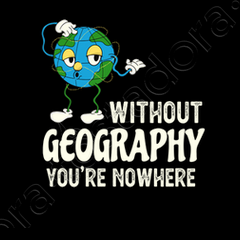Geography at St Bega's
Intent (Why do we teach what we teach?)
We aim to inspire in children a curiosity and fascination about the world and its people which will remain with them for the rest of their lives We want children to enjoy learning about geography and develop their interest and understanding of diverse places, people, resources, and natural and human environments, together with a deep understanding of the Earth’s key physical and human processes.
Our geography curriculum builds on children’s prior learning and develops their knowledge of the world around them so that they know more, remember more, and understand more.
Learning about geography enables children to develop knowledge and skills that are transferable to other curriculum areas and which can and are used to promote their spiritual, moral, social, and cultural development.
Implementation (How do we teach it?)
As a school within Bishop Hogarth Catholic Education Trust, we teach a scheme of work designed by a writing team of our primary school staff working with subject specialists from our secondary schools. This means our curriculum has been designed to ensure clear progression, in the acquisition of knowledge and for key skills, building on pupil’s prior learning. We teach termly, discrete topics for all pupils from Year 1 to Year 6.
The curriculum units of work have clearly identified minimum knowledge ‘end points,’ and have been sequenced to ensure that pupils know more and remember more as they move through primary school and transfer into KS3.
Our curriculum covers the National Curriculum and is underpinned by the building blocks of Geography (Threshold Concepts) which are emphasised and reinforced in the geography curriculum across our Trust schools from KS1 to KS5.
-
Location and Place Knowledge
-
Geographical techniques and terms.
-
Physical features and processes.
-
Human interaction with the environment.
Each unit of work has a clear rationale, key topic vocabulary, builds on pupil’s prior learning and defines the minimum knowledge and skills (end points) that pupils will learn. Assessment strands in topics give pupils the opportunity to demonstrate their learning and the knowledge companions that we call ‘Learn it! Link It! help pupils to remember the key elements of the topic. This helps pupil organise their learning into relevant areas and make links to other areas and subjects. Conceptual (Golden) threads of Geography such as cause, effect response and the ‘Geotrio’ of social, economic, and environmental factors, are woven through our curriculum to ensure consistency, add focus and promote purposeful learning.
Topics and units lay out sequential components of learning which equates to 8-10 hours of teaching.
Local Context of School
To address the local context, our scheme includes the study of the local area. We include details of local features in topics such as the Journey of the River Tees and River Tyne and local elements in coastal erosion.
Impact (What has been the impact and how do we know?)
When pupils leave our school, pupil will know more, remember more, and understand more about Geography. They will have developed the geographical knowledge and skills to help them explore, navigate, and understand the world around them and their place in it.
The majority of pupil will achieve age related expectations in Geography and clear progress will be evident in their topic work and in topic assessed tasks. Outcomes in Geography books will demonstrate the pupil’s acquisition of key knowledge and topic, ‘end points’. They will have the firm foundations in Geography and are well placed to make good progress at Key Stage 3.

